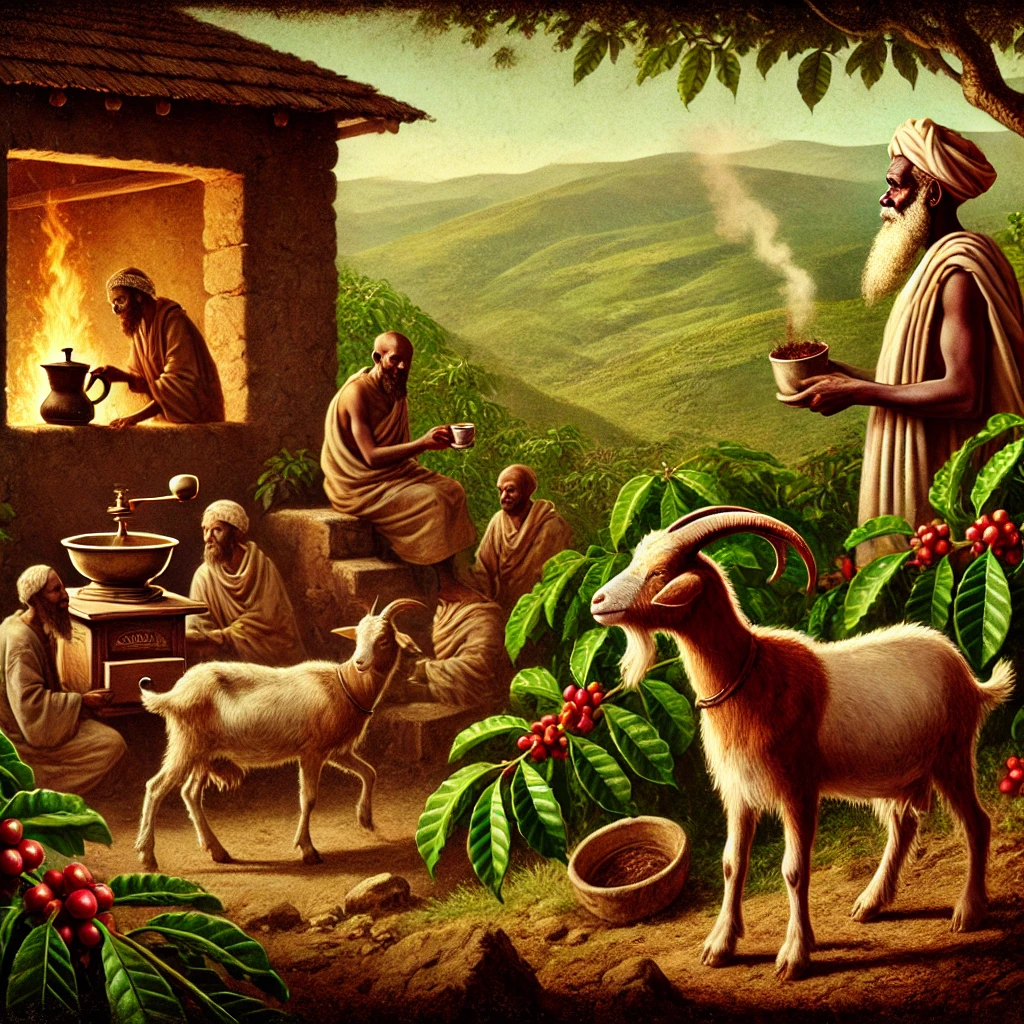
Coffee’s rich history spans centuries and continents, evolving from a mystical discovery to a global cultural phenomenon. Here’s an overview of its origins:
Legendary Beginnings in Ethiopia
The story of coffee’s discovery traces back to 9th-century Ethiopia. According to legend, a goat herder named Kaldi noticed his goats becoming unusually energetic after consuming cherries from a particular tree. Intrigued, Kaldi tried the cherries himself and experienced a similar boost in vitality. He shared his findings with a local monastery, where monks used the cherries to create a drink that helped them stay alert during extended prayers. This narrative, while anecdotal, highlights coffee’s early association with enhanced wakefulness. ABOUTCOFFEE.ORG
Cultivation and Spread in the Arab World
By the 15th century, coffee had made its way across the Red Sea to Yemen on the Arabian Peninsula. Sufi monks in Yemen adopted the beverage to aid concentration during nighttime devotions. From Yemen, coffee spread to Mecca and Medina, becoming integral to Islamic culture. The port city of Mocha in Yemen emerged as a central hub for coffee trade, lending its name to the popular “mocha” flavor. BRITANNICA.COM
Introduction to Europe
European travelers to the Near East encountered coffee and brought it back to the continent. By the 17th century, coffeehouses began appearing in major cities like Venice, London, and Paris. These establishments became centers for social interaction, intellectual discourse, and business transactions, earning nicknames like “penny universities” due to the stimulating conversations patrons could enjoy for the price of a coffee. EN.WIKIPEDIA.ORG
Global Expansion
The European colonial powers played a significant role in spreading coffee cultivation worldwide. The Dutch introduced coffee to Java in Indonesia, while the French established plantations in the Caribbean, notably on the island of Martinique. In the 18th century, coffee plants were brought to Brazil, which would eventually become the world’s largest coffee producer. Today, coffee is a global commodity, deeply embedded in cultures around the world. EN.WIKIPEDIA.ORG
For more in-depth information on coffee’s history, you can explore the following resources:
- National Coffee Association: History of Coffee
- Britannica: History of Coffee
- Wikipedia: History of Coffee
These sources offer comprehensive insights into coffee’s journey from its legendary origins to its current global significance.





